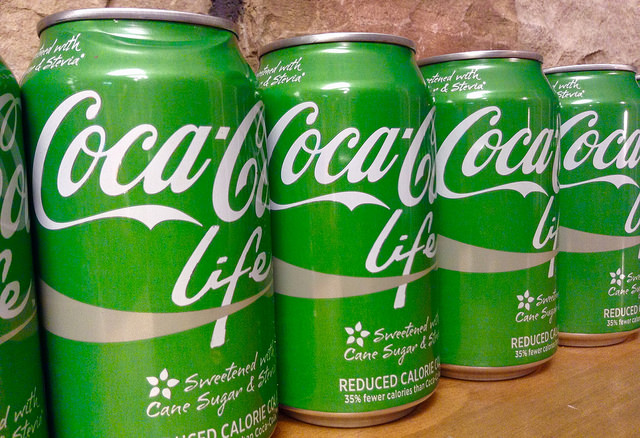Category: Biotech business news
-
Is “Food-Tech” the Future of Food?
by Dana Perls, senior food and technology campaigner with Friends of the Earth US. Cross-posted from https://medium.com/@foe_us/is-food-tech-the-future-of-food-49bd414cfb8b Today in San Francisco at the Future Food-Tech conference, multinational food and agrichemical corporations, Silicon Valley investors, PR companies, big ag astroturf groups, and biotech startups are gathering to map out the future of our food system — and attract […]
-

The Monsanto–Bayer tie-up is just one of seven; Mega-Mergers and Big Data Domination Threaten Seeds, Food Security
by ETC Group Policymakers could still block the agribiz mergers; peasants and farmers will continue the fight for seeds and rights Wednesday’s confirmation that Monsanto and Bayer have agreed to a $66 billion merger is just the latest of four M&A announcements, but at least three more game-changing mergers are in play (and flying under […]
-
Why Kickstarter’s Glowing Plant Left Backers in the Dark
by Antonio Regalado (MIT Technology Review) In any discussion of biohacking, Exhibit A is likely to be the “glowing plant,” the wildly successful 2013 Kickstarter campaign that raised $484,013 to create bioluminescent plants visible at night. Just one problem, though. There is still no glowing plant. The Glowing Plant project, since renamed Taxa Biotechnologies, has […]
-

Meet the New Stevia! GMOs 2.0 Get Dressed for Success
by Stacy Malkan (The Huffington Post) Our culture is smitten with the notion that technology can save us – or at least create great business opportunities! Cargill, for example, is working on a new food technology that mimics stevia, a sugar substitute derived from plant leaves, for the “exploding sports nutrition market.” Cargill’s new product, […]
-

Biofuel or Biofraud? The Vast Taxpayer Cost of Failed Cellulosic and Algal Biofuels
by Almuth Ernsting (Independent Science News) Biofuels consumed today are usually ethanol made from the sugar in sugar cane (or sugar beet) or they may be made from starch in grains. In the US this is mostly corn starch. Alternatively, biodiesel may be made from plant oils such as soybean or canola oil. Cellulosic biofuels, […]
-

Not cheap and not plentiful: Hyped-up synthetic biology claims take another blow as malaria drug production plant shuts down
by Almuth Ernsting Synthetic biology is being heavily promoted and funded as a way to produce large quantities of cheap industrial products, including biofuels. But so far affordable, large-scale manufacture with synbio organisms has proven elusive. Synbio start-up companies that set out to produce high volumes of low-cost biofuels have switched to low volumes of […]
-
Ecover must come clean on synthetic biology
[This article was originally published in The Ecologist.] Following The Ecologist’s revelation about Ecover’s use of synthetic biology to make laundry detergent, the company has put its trials on hold, writes Jim Thomas. But to regain public trust, the company must re-engage honestly with its critics, and its customers. A month ago, The Ecologist revealed that ‘eco-friendly’ soap […]
-
Companies Quietly Apply Biofuel Tools to Household Products
This article originally appeared in the New York Times. By STEPHANIE STROM MAY 30, 2014 Consumer products containing ingredients made using an advanced form of engineering known as synthetic biology are beginning to show up more often on grocery and department store shelves. A liquid laundry detergent made by Ecover, a Belgian company that makes […]
-
What’s That Smell? Exotic Scents Made From Re-engineered Yeast – By Andrew Pollack
Reposted from the New York Times October 20, 2013 EMERYVILLE, Calif. — Vanilla, saffron, patchouli. For centuries, spices and flavorings like these have come from exotic plants growing in remote places like the jungles of Mexico or the terraced hillsides of Madagascar. Some were highly prized along ancient trading routes like the Silk Road. Now […]
-

Mass Release of Synthetically Engineered Plant Seeds via Kickstarter Campaign Draws Protest
An Israeli company seeks to use a loophole in US regulations on genetically engineered plants to conduct a mass release of a genetically modified organism (a glow in the dark Arabidopsis plant) with no regulatory review. Current US regulations, which would apply if the plant were modified using non-synthetic techniques, don’t cover the new gene […]